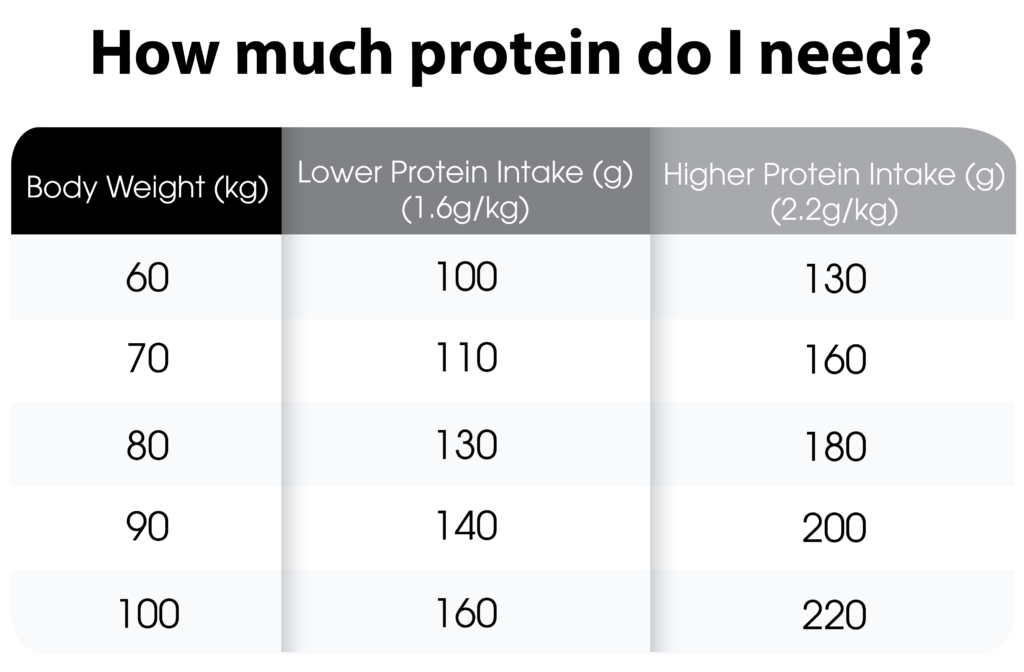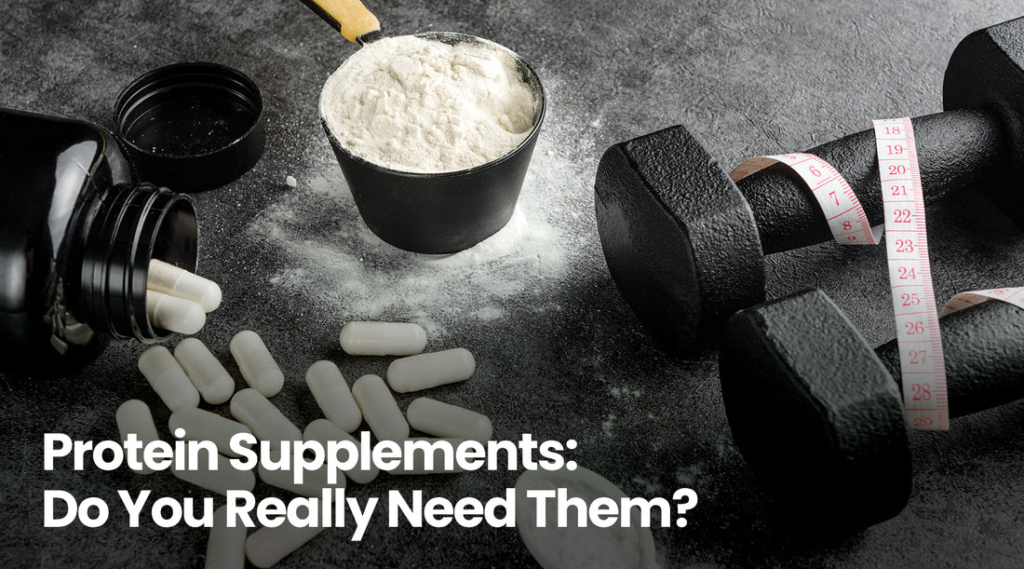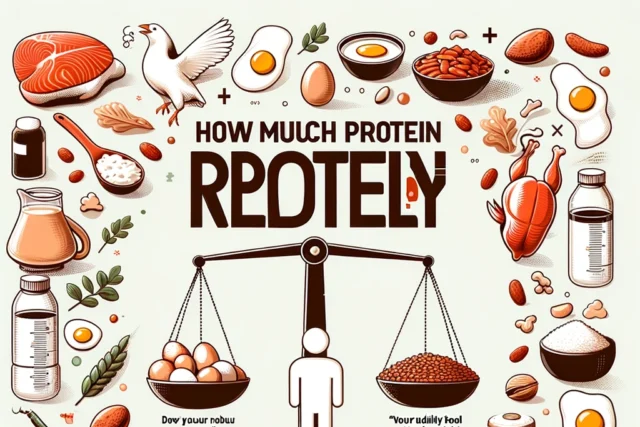Proteins play a central role in our diet, serving as one of the three macronutrients essential for health. Along with carbohydrates and fats, it is critical for maintaining bodily functions, building muscle, and supporting the immune system. Whether you’re an athlete looking to enhance performance or someone simply aiming to maintain a healthy lifestyle, understanding the importance of protein in a balanced diet is key. Let’s dive into why this macronutrient deserves the spotlight.
Table of Contents
What is Protein?
At its core, protein is a complex molecule made up of smaller units called amino acids. There are 20 different amino acids, and they can combine in countless ways to form various types of proteins, each serving a specific function in the body. While some amino acids can be produced by the body, nine are classified as essential because we must obtain them through our diet.
Why is Protein Essential for the Body?

Protein is much more than a muscle-building nutrient. It serves a variety of functions that are critical to overall health.
- Growth and Repair: This is the building block for cells, tissues, and organs. It plays a vital role in repairing damaged tissues and aiding the body’s recovery after physical stress or injury.
- Immune System Support: Proteins are responsible for producing antibodies, which help fight off infections and diseases.
- Enzyme and Hormone Production: Many enzymes that regulate body processes and hormones, which control various functions (like metabolism and mood), are made from proteins.
Protein and Muscle Growth

Protein is often hailed as the building block of muscle, and for good reason. It’s essential in the process of muscle repair and growth, particularly after physical activity like strength training. Here’s how it works:
How Protein Helps Build Muscle Mass
When you engage in resistance exercises such as weightlifting, you cause tiny tears in your muscle fibers. This might sound like a bad thing, but it’s actually the first step toward muscle growth. Once these micro-tears occur, your body responds by repairing them, making the muscles stronger and, over time, larger. Protein plays a critical role in this repair process.
When you consume protein, it is broken down into amino acids, which are used to rebuild and strengthen the damaged muscle fibers. This process is known as muscle protein synthesis. To maximize muscle growth, your body needs an adequate supply of amino acids, particularly the essential amino acids, which cannot be produced by the body and must be obtained through your diet. One amino acid, leucine, is especially important for stimulating muscle protein synthesis and promoting growth.
So, the more you challenge your muscles through exercise, the more protein your body requires to repair and build them. However, it’s not just about eating massive amounts of protein. Timing and the quality of the protein you consume are crucial. Post-workout protein consumption helps provide your muscles with the amino acids they need at the right time to optimize recovery.
Protein Intake for Athletes and Active Individuals
Athletes and individuals who engage in regular physical activity have higher protein needs than sedentary people. For active individuals, protein supports not only muscle growth but also overall recovery, energy, and performance.
The amount of protein you need depends on the type of activity, intensity, and your body weight. While the average adult requires about 0.8 grams of protein per kilogram of body weight, athletes and those engaging in regular, intense exercise may need anywhere from 1.2 to 2.0 grams per kilogram of body weight.
For example, a 150-pound (68 kg) person who is actively training may need around 82 to 136 grams of protein per day to support muscle repair and growth. Consuming this protein spread out throughout the day—in meals and snacks—ensures a steady supply of amino acids, preventing muscle breakdown and promoting growth.
For athletes aiming to build muscle, protein shakes or other supplements can sometimes be a convenient way to meet their increased needs, especially immediately after a workout when their muscles are in a prime state for recovery. However, whole food sources of protein, such as chicken, eggs, fish, beans, and tofu, are also highly effective and provide additional nutrients that support overall health.
Protein’s Role in Weight Management

Protein isn’t just for those looking to bulk up—it’s also a key player in weight management. In fact, increasing your protein intake can help you lose or maintain weight by reducing hunger, improving satiety, and boosting your metabolism.
Protein and Satiety: How It Helps Control Hunger
One of the main reasons protein is so effective for weight management is that it helps you feel full for longer periods of time. Compared to carbohydrates and fats, protein takes longer to digest, which helps you avoid frequent hunger pangs and reduce overall calorie intake.
When you eat protein, it triggers the release of hormones like peptide YY and GLP-1, which signal fullness to your brain. This makes protein an excellent choice for anyone trying to control their appetite and avoid overeating. For example, starting your day with a protein-rich breakfast—like eggs or Greek yogurt—can help you feel satisfied and energized, reducing the temptation to snack on unhealthy foods later in the day.
Protein also has a stabilizing effect on blood sugar levels, which prevents the spikes and crashes in energy that can lead to cravings and overeating, particularly for sugary or high-carb foods.
The Thermic Effect of Food (TEF) and Metabolism Boost
In addition to keeping hunger at bay, protein can actually help boost your metabolism through the thermic effect of food (TEF). TEF refers to the amount of energy (calories) your body uses to digest, absorb, and metabolize the food you eat. Protein has a higher thermic effect compared to carbohydrates and fats, meaning your body burns more calories processing it.
Here’s how it works: for every 100 calories of protein you eat, your body uses about 20 to 30 calories just to break it down and digest it. In contrast, the thermic effect of carbohydrates is only around 5 to 10 calories, and for fats, it’s about 0 to 5 calories. This higher TEF means that protein not only helps you feel fuller but also helps your body burn more calories throughout the day, even when you’re at rest.
By increasing your protein intake, you can slightly increase your overall calorie expenditure, which can be particularly helpful for weight loss or weight maintenance. This metabolic boost, combined with the hunger-controlling effects of protein, makes it a powerful tool for anyone looking to manage their weight in a sustainable way.
Types of Dietary Protein
There are two primary types of dietary proteins: animal-based and plant-based.
Animal-Based Proteins
This group includes meat, fish, poultry, eggs, and dairy. These are considered complete proteins because they contain all nine essential amino acids.
Plant-Based Proteins
Found in foods like beans, lentils, nuts, seeds, and whole grains, these are typically incomplete proteins. However, by combining different plant-based foods (e.g., rice and beans), you can still get all essential amino acids.
Complete vs. Incomplete Proteins
A complete protein provides all nine essential amino acids in the amounts the body needs. Animal sources like meat, dairy, and eggs are complete proteins. In contrast, most plant proteins are incomplete, lacking one or more essential amino acids. However, by combining different plant foods (like quinoa and black beans), you can create a complete amino acid profile, even on a plant-based diet.
How Much Protein Do You Need?

The amount of protein a person needs varies based on several factors such as age, activity level, and overall health. For the average adult, the recommended dietary allowance (RDA) is 0.8 grams of protein per kilogram of body weight. However, athletes or people with higher physical activity levels may require more.
- Adults: Around 50-70 grams per day
- Athletes: 1.2 to 2.0 grams per kilogram of body weight
- Older Adults: Slightly higher than the average adult, as muscle mass tends to decline with age
Common Sources of Protein
If you’re wondering where to get your protein, here are some top sources:
- Animal Proteins: Chicken, beef, fish, eggs, milk, cheese, and yogurt.
- Plant Proteins: Lentils, chickpeas, quinoa, tofu, nuts, and seeds.
High-Protein Diets: Are They Beneficial?
High-protein diets like Keto and Paleo have become popular for their potential weight loss benefits. These diets emphasize reducing carbohydrates and increasing protein intake. While they can be effective for some people, it’s essential to balance macronutrients to avoid nutrient deficiencies and long-term health risks like kidney strain.
Protein Deficiency: Signs and Risks
Protein deficiency can lead to a variety of health issues. Common signs include:
- Weakness and fatigue
- Hair loss and brittle nails
- Edema (swelling)
- Weakened immune response
If left unchecked, a lack of protein can result in muscle wasting, weakened immunity, and other severe health problems.
Protein Supplements: Do You Need Them?

Protein supplements, such as whey, casein, and plant-based powders, can be a convenient way to boost intake, especially for athletes or those with higher protein needs. However, most people can meet their protein needs through whole foods, and supplements should be used only when necessary.
Balancing Protein with Other Nutrients
While protein is crucial, it’s important not to neglect the other macronutrients. Carbohydrates provide energy, and fats support hormone production and brain function. A balanced diet should include all three macronutrients in appropriate proportions, ensuring optimal health.
Protein Myths and Misconceptions
There are plenty of misconceptions about protein, and it’s time to set the record straight.
- Myth: Too much protein damages your kidneys.
- Fact: For healthy individuals, there’s no evidence that high-protein diets cause kidney damage. However, people with pre-existing kidney conditions should monitor protein intake.
- Myth: You need to consume protein immediately after a workout.
- Fact: While it’s beneficial to consume protein after exercise, you don’t need to rush. Spacing your protein intake throughout the day is more effective.
Conclusion
Incorporating the right amount of protein into your diet is crucial for overall health. From building muscle to supporting immune function and aiding in weight management, protein serves a multitude of essential roles. Whether you prefer animal-based or plant-based sources, ensuring a balanced intake of protein, along with other macronutrients, is key to a healthy diet.
Frequently Asked Questions
How can vegetarians meet their protein needs?
Vegetarians can get ample protein from plant-based sources like beans, lentils, tofu, and quinoa. Combining different sources ensures a complete amino acid profile.
Is it possible to consume too much protein?
Yes, excessive protein can strain the kidneys and liver, particularly in people with pre-existing conditions. It’s essential to maintain balance.
Do older adults need more protein than younger adults?
Yes, older adults may require slightly more protein to maintain muscle mass and strength as they age.
Are plant-based proteins as effective as animal proteins?
Yes, as long as you combine different plant sources, you can meet your body’s protein needs just as effectively as with animal proteins.
Can protein help with weight loss?
Yes, protein helps you feel full longer and boosts your metabolism, both of which can aid in weight loss.


MOST COMMENTED
Animal-Based Proteins / Casein Protein / Dietary Protein / High-Protein Diets / Pea Protein / Plant-Based Proteins / Protein / Protein Deficiency / Protein Supplements / Proteins / Whey Protein / Whey Proteins
Is Protein Powder Safe for Teenagers and Children?
Animal-Based Proteins / Casein Protein / Dietary Protein / High-Protein Diets / Pea Protein / Plant-Based Proteins / Protein / Protein Deficiency / Protein Supplements / Proteins / Whey Protein / Whey Proteins
Unlock the Power of Proteins for Optimal Gut Health
Multivitamin
Total Health: Multivitamin for Active Lifestyles
Multivitamin
WellnessFusion: Complete Multivitamin Support
Dietary Supplement
Revitalize Your Health: The Magic of Red Yeast Rice Capsules
Foot care / Foot Health
Revitalize Your Foot Care Routine: Essential Tips for Optimal Foot Health
Foot Problem / Diabetics / Foot Health
Diabetics: Mastering Footwear Selection for Enhanced Foot Health and Ultimate Comfort
Exercises and Footwear Tips for Hammertoe Relief / Foot care / Foot Health / Foot Pain / Foot Problem / Hammertoes
Unlock Effective Exercises and Footwear Tips for Hammertoe Relief
Hammertoes / Foot Health / Foot Pain / Foot Problem
Unlock Relief: Essential Guide to Hammertoes Causes, Symptoms, and Treatments
Foot Problem / Foot Health
Revolutionize Your Recovery: Natural Remedies for Plantar Fasciitis – Fresh Home Keepers